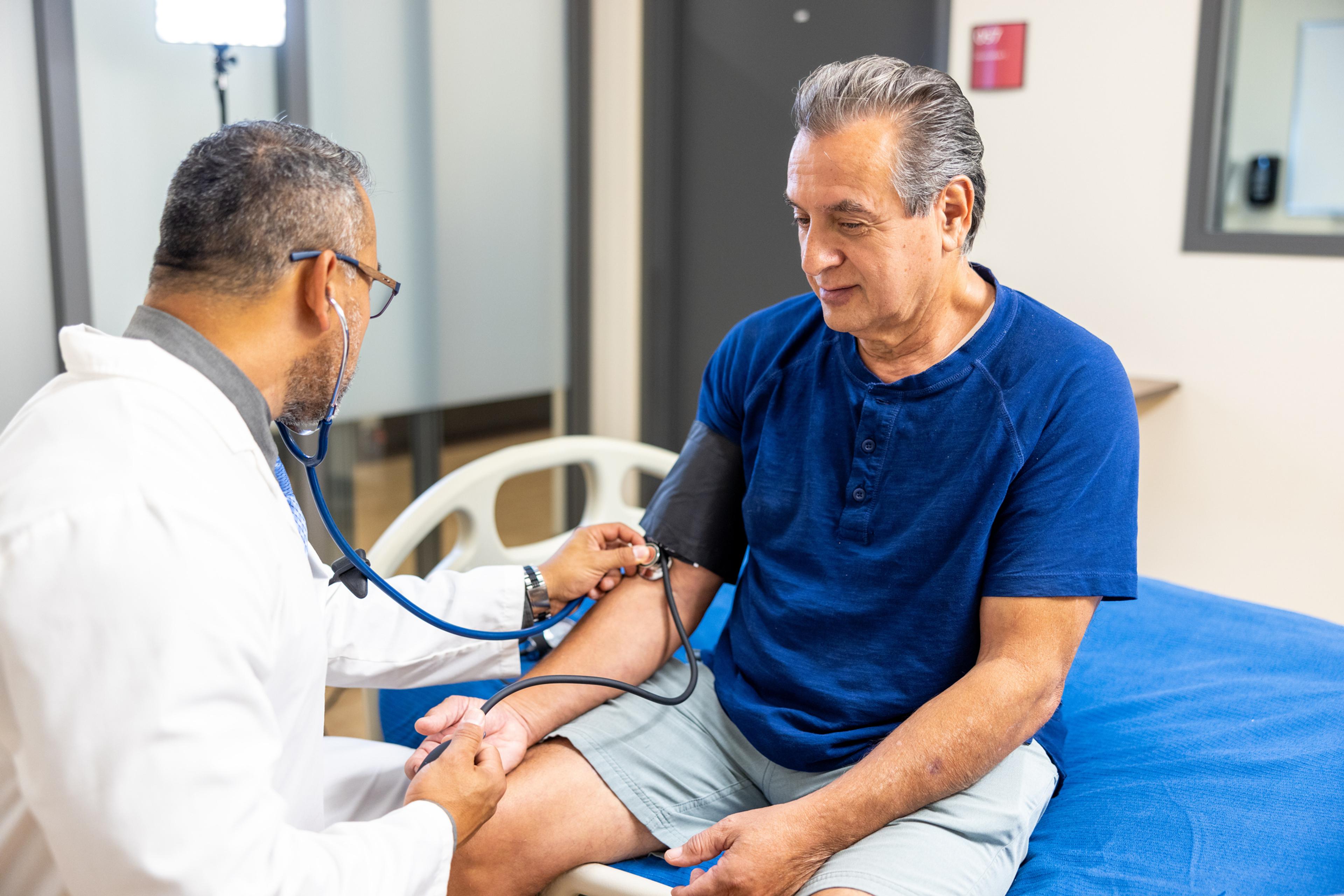
Every 90 minutes, someone is diagnosed with Amyotrophic Lateral Sclerosis (ALS). And every 90 minutes, someone dies from the disease, according to the ALS Association.
ALS is a nervous system disease that affects nerve cells in the brain and spinal cord that control voluntary muscle movements, most notably talking and walking. ALS often starts in the arms, hands, legs or feet and spreads to other parts of the body. As nerve cells die, muscles degenerate and undergo ‘sclerosis,” the scarring or hardening of body tissue
ALS almost always progresses and gets worse for the people who have it. It is sometimes referred to as Lou Gehrig’s disease, after the baseball player who was diagnosed in the 1930s.
What are the stages and symptoms of ALS?
Generally, pain is not associated with the early stages of ALS. Pain also is not common in the later stages of ALS.
Early symptoms of ALS often include stiffness or weakness of the muscles. More advanced stages of the disease involve progressive weakness, wasting and paralysis of the muscles of the limbs, trunk and vital functions like walking, writing, speaking and swallowing.
What differs most for every person is how rapidly symptoms impact them, and in what order and progression they occur. While the average survival time is three years, about 20% of people with ALS live five years, 10% survive 10 years and 5% live 20 years or longer.
Symptoms may include:
- A general struggle or inability to get dressed or complete daily activities
- Changes in behavior or thinking patterns
- Muscle cramps and twitching in the arms, shoulders and tongue
- Tripping and falling
- Untimely crying, laughing or yawning
- Weakness in the hands, legs, feet or ankles
Is ALS genetic?
Established risk factors for ALS include age, sex and family history.
Most people who develop ALS are between the ages of 40 and 70, with an average age of 55 at the time of diagnosis, per the ALS Association. ALS is 20% more common in men than women. With increasing age – usually by the time a person turns 70 – the sex difference becomes nonexistent.
Most patients with ALS do not experience a family history of the disease. Only about 10% of ALS cases are considered “familial ALS” (FALS) and stem from the inheritance of a mutated gene from a family member with a known connection to the disease. The remaining 90% of ALS cases are considered random; this is known as sporadic ALS.
Some environmental factors and lifestyle habits for ALS can include smoking cigarettes, environmental toxin exposure and military service, regardless of branch. – veterans are twice as likely to develop Amyotrophic Lateral Sclerosis (ALS) in comparison to those who have not served in the military.
The exact causes of ALS are unknown, but the aforementioned factors can contribute to the diagnosis for some. Researchers theorize that other possible causes could be gene mutations, autoimmune responses and the gradual accumulation of abnormal proteins in nerve cells.
Treatment
Although there is no known cure for ALS, some medications can help with fatigue, ease muscle cramps and reduce excess saliva and phlegm. Speak with your primary care physician to decide if a prescription is right for you.
Physical and occupational therapies can help enhance the independence of a person diagnosed with ALS. Low-impact exercise like walking, stationary biking and swimming can also strengthen unaffected muscles, improve cardiovascular health and counteract fatigue and depression.
Conversely, speech therapy can help a person with a worsening case of ALS by allowing them to develop ways to respond non-verbally to yes-or-no questions. Devices like speech synthesizers and computer-based communication systems help people communicate when they can no longer speak.
Genetic testing for ALS
While previously reserved for those with a strong family history of ALS, genetic testing is an option for anyone who has received a diagnosis. Since 90% of patients do not have FALS, diagnosis is not determined by a genetic test. Anyone who has symptoms of ALS – in addition to a family history of ALS – may be a candidate for genetic testing. A positive test means that the genetic cause of FALS has been identified.
Talk with your doctor before pursuing an ALS genetic test. They may recommend speaking with a genetic counselor, who can talk through the process, potential benefits, risks and cost of a genetic test, as well as interpret the potential results.
Photo credit: Getty Images





